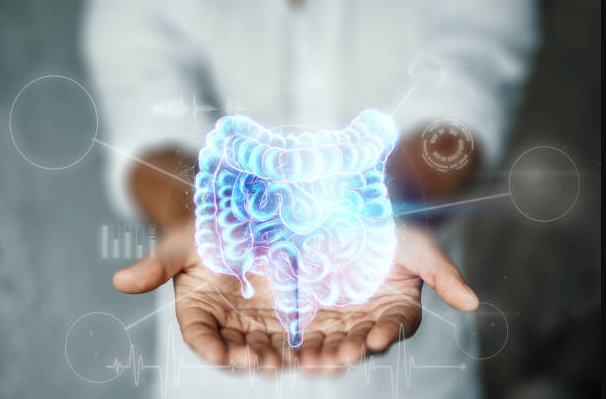Introduction: Understanding Gut Health
Gut health has emerged as a pivotal component of overall well-being in recent years. Often referred to as the “second brain,” the gut plays a vital role not only in digestion but also in mental health, immune function, and even chronic diseases like diabetes and obesity. The intricate network of bacteria, fungi, and other microorganisms in your gut, known as the gut microbiome, is essential for maintaining balance and promoting health.
This article will explore the profound impact of gut health on both physical and mental well-being, the symptoms of an unhealthy gut, and practical steps you can take to improve and maintain a healthy digestive system.
The Science of the Gut Microbiome
The gut microbiome consists of trillions of microorganisms that live primarily in the intestines. These microorganisms are not just passive inhabitants; they actively participate in processes like digestion, nutrient absorption, and the regulation of immune responses.
The balance of good and bad bacteria in the gut is crucial for maintaining health. An imbalance, known as dysbiosis, can lead to various health issues, including digestive problems, immune dysfunction, and even mood disorders like anxiety and depression.
How Gut Health Impacts Physical Well-Being
Digestive Health
The most direct impact of gut health is on digestion. A well-functioning gut microbiome aids in breaking down food, absorbing nutrients, and eliminating waste. Common digestive issues like bloating, constipation, diarrhea, and irritable bowel syndrome (IBS) are often linked to poor gut health.
For example, IBS has been closely associated with an imbalance in gut bacteria. Probiotics and dietary changes have been shown to alleviate symptoms by restoring this balance.
Immune System Function
Approximately 70% of the body’s immune system is located in the gut. A healthy gut helps maintain a strong immune response, protecting the body from infections and diseases. When the gut is imbalanced, the immune system may become compromised, leading to increased susceptibility to illnesses and even autoimmune disorders like Crohn’s disease or celiac disease.
Weight Management and Metabolism
Studies show a strong correlation between gut health and weight regulation. Certain bacteria are associated with increased fat storage, while others help regulate metabolism. Poor gut health can lead to weight gain, insulin resistance, and obesity by influencing hunger hormones like ghrelin and leptin.
In one study published in Nature, researchers found that obese individuals had less diverse gut microbiomes compared to lean individuals, suggesting that a richer microbial diversity is beneficial for maintaining a healthy weight.
Inflammation and Chronic Diseases
An unhealthy gut can trigger chronic inflammation, which is linked to a range of diseases such as heart disease, diabetes, and even cancer. The gut microbiome plays a key role in modulating inflammation levels in the body. When the balance is disturbed, it can lead to increased inflammation and a higher risk of developing chronic conditions.
The Gut-Brain Axis: How Gut Health Affects Mental Well-Being
The gut-brain axis refers to the bidirectional communication between the gut and the brain. This connection means that gut health has a significant impact on mental health. Recent research has revealed that imbalances in gut bacteria can contribute to conditions like anxiety, depression, and even neurodegenerative diseases.
Anxiety and Depression
The gut produces around 90% of the body’s serotonin, a neurotransmitter that regulates mood, sleep, and appetite. An unhealthy gut can lead to lower serotonin levels, contributing to mood disorders like anxiety and depression.
A study published in Psychiatry Research found that individuals with major depressive disorder had altered gut microbiomes, suggesting that restoring gut balance may help alleviate symptoms of depression.
Cognitive Function and Memory
The gut microbiome also affects cognitive function and memory. Certain bacteria produce short-chain fatty acids (SCFAs) that have anti-inflammatory properties and can protect the brain from cognitive decline. Imbalances in gut bacteria are linked to cognitive issues, including brain fog and memory loss.
Symptoms of an Unhealthy Gut
Understanding the signs of an unhealthy gut can help you take proactive steps to restore balance. Common symptoms include:
- Digestive issues like bloating, gas, and diarrhea
- Unexplained weight changes
- Constant fatigue or sleep disturbances
- Skin conditions like eczema or acne
- Food intolerances
- Frequent infections due to a weakened immune system
- Mood swings, anxiety, or depression
How to Improve Gut Health: Practical Tips
1. Incorporate Probiotic-Rich Foods
Probiotics are beneficial bacteria that can help restore balance to the gut. Fermented foods like yogurt, kefir, sauerkraut, kimchi, and kombucha are excellent sources of probiotics. Regular consumption of these foods can support a healthy microbiome.
2. Increase Fiber Intake
Fiber is a prebiotic, meaning it feeds the good bacteria in your gut. High-fiber foods like fruits, vegetables, legumes, and whole grains can help improve gut health by encouraging the growth of beneficial bacteria.
3. Limit Processed Foods and Sugar
Processed foods and refined sugars can promote the growth of harmful bacteria in the gut. Reducing your intake of these foods and replacing them with whole, nutrient-dense options can help restore balance to your microbiome.
4. Stay Hydrated
Drinking enough water is essential for digestion and gut health. Water helps with the elimination of waste and supports the mucosal lining of the intestines, promoting a healthy environment for good bacteria.
5. Exercise Regularly
Regular physical activity has been shown to promote a more diverse gut microbiome. Exercise helps stimulate the gut and promotes the growth of beneficial bacteria, leading to improved overall gut health.
6. Manage Stress
Chronic stress can negatively impact gut health by altering the composition of gut bacteria and increasing intestinal permeability (commonly known as “leaky gut”). Stress management techniques like meditation, yoga, and deep breathing can help maintain a healthy gut-brain connection.
7. Get Enough Sleep
Poor sleep can disturb the balance of gut bacteria, which in turn can lead to issues like weight gain and mood disorders. Prioritizing 7-9 hours of quality sleep per night is essential for maintaining gut health.
The Future of Gut Health: Emerging Research and Trends
As scientific research on gut health continues to grow, new discoveries are being made about the intricate relationship between the gut and various aspects of health. Some emerging areas of interest include:
- Personalized Gut Health: Scientists are developing personalized treatments based on an individual’s unique microbiome. This could lead to more targeted interventions for digestive disorders, mental health conditions, and even metabolic diseases.
- Fecal Microbiota Transplantation (FMT): This emerging therapy involves transplanting healthy gut bacteria from a donor to a patient with severe dysbiosis. FMT has shown promise in treating conditions like Clostridium difficile infections and inflammatory bowel diseases.
- Gut Health and Cancer: Preliminary studies suggest that a healthy gut microbiome may help protect against certain types of cancer, and gut bacteria may even influence the effectiveness of cancer treatments like immunotherapy.
Conclusion: Prioritizing Gut Health for a Better Life
Your gut health plays a crucial role in both your physical and mental well-being. By understanding how the gut microbiome works and taking steps to improve it, you can enhance digestion, boost immunity, manage weight, and even improve your mood and cognitive function. Prioritizing gut health through diet, lifestyle changes, and stress management can lead to a healthier, happier life.
Sources:
- Sonnenburg, Justin L., and Erica Sonnenburg. The Good Gut: Taking Control of Your Weight, Your Mood, and Your Long-term Health. Penguin, 2015.
- Mayer, Emeran. The Mind-Gut Connection: How the Hidden Conversation Within Our Bodies Impacts Our Mood, Our Choices, and Our Overall Health. HarperCollins, 2016.
- Gibson, Glenn R., and Marcel Roberfroid. “Dietary Modulation of the Human Colonic Microbiota: Introducing the Concept of Prebiotics.” Journal of Nutrition, 1995.
- Cryan, John F., and Timothy G. Dinan. “Gut Microbiota: A Missing Link in Psychiatry?” World Psychiatry, 2012.

